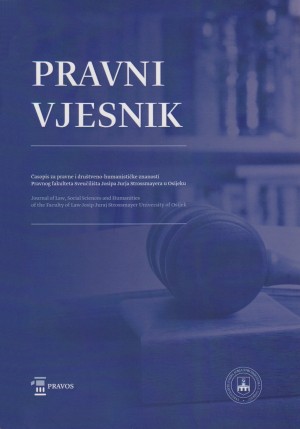MI, NAROD FEDERACIJE! USTAVOTVORNA VLAST U KLASIČNIM I SUVREMENIM FEDERACIJAMA
WE, THE PEOPLE OF THE FEDERATION! CONSTITUENT AUTHORITY IN CLASSIC AND MODERN FEDERATIONS
Author(s): Robert PodolnjakSubject(s): Constitutional Law, Political Theory, Politics and law
Published by: Pravni fakultet Sveučilišta Josipa Jurja Strossmayera u Osijeku
Keywords: federalism; confederalism; federation; constitution; constituent authority;
Summary/Abstract: Regardless of the earlier assumptions about the obsolescence of the classic federal theory, the paper emphasizes the contemporary significance and relevance of federalism. Europe is the epicentre of modern federalization processes, not only when it comes to the European Union, but also a number of European countries such as Belgium, Spain and the United Kingdom. The paper points out the fundamental distinction between the classic and modern federalism, which has its origin in the fact that federal systems ‘arise’ differently as a result of opposite processes of federalization and that in this sense we can distinguish between classic “integrative” and modern “devolutive” federalism. The basic assumptions of the paper are that 1) these two federalism patterns originally differ in the character of the basic constitutive act of the federal union with regard to the subject of creating a federation, and 2) because contemporary federations are “federal states without a federal foundation” this difference is not noticeable today. On the contrary, it has largely disappeared, and in this way, the difference between classic and modern federalism is actually bridged.
- Issue Year: 37/2021
- Issue No: 2
- Page Range: 7-34
- Page Count: 28
- Language: Croatian

